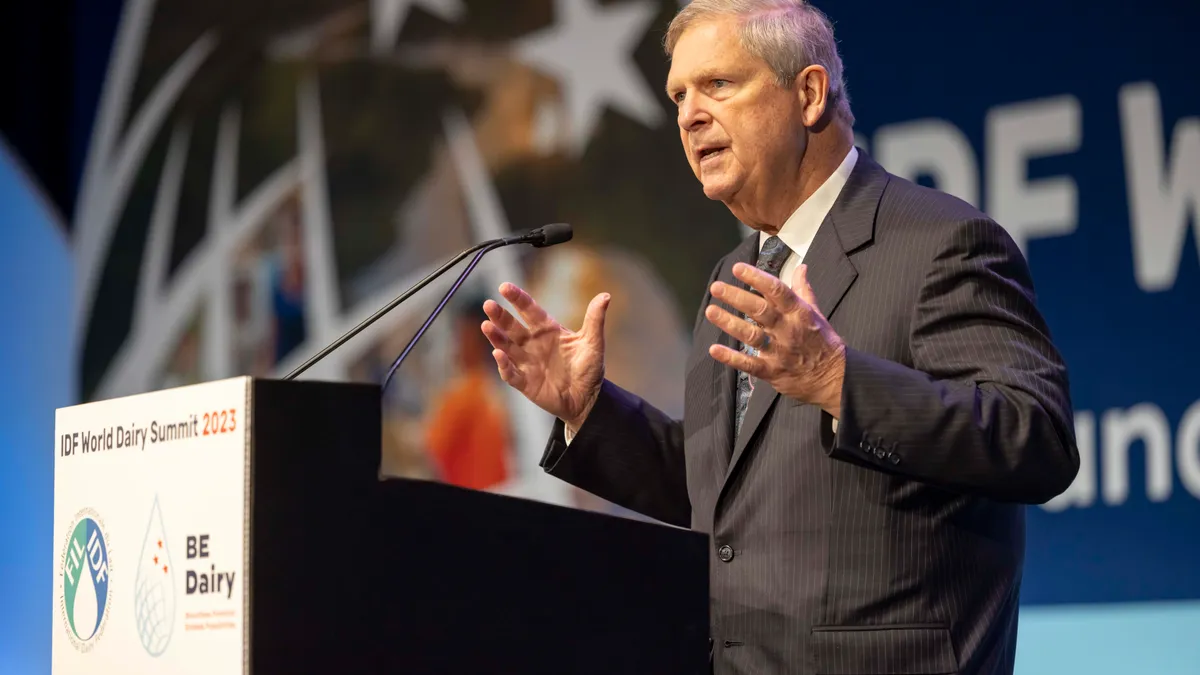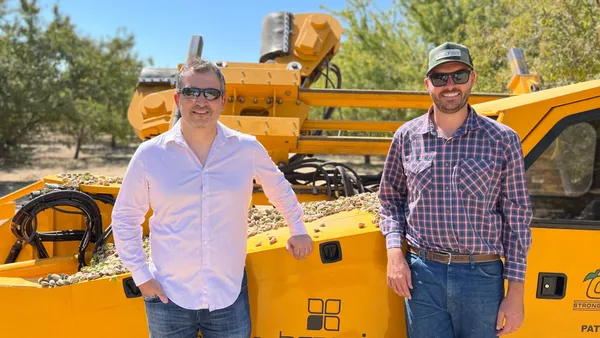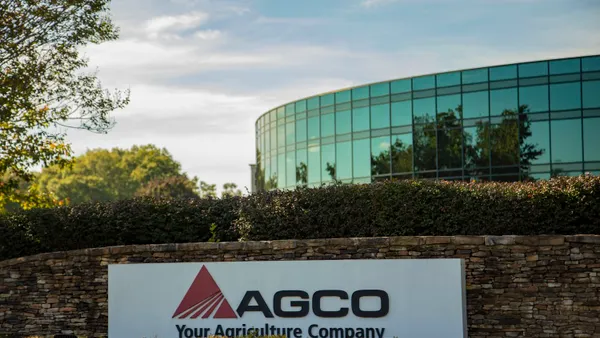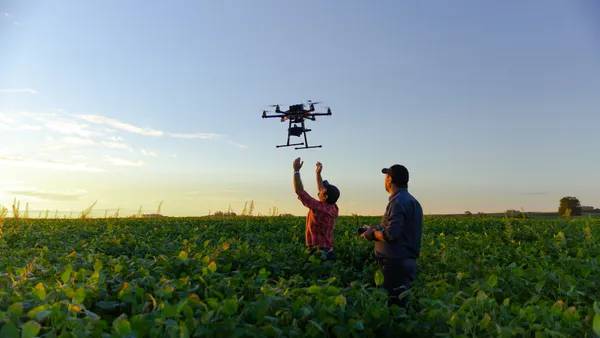Dive Brief:
- Farm bill negotiations need to be more "forward-looking" if the U.S. wants to encourage farmers to take action on climate and transition to new technologies, Agriculture Secretary Tom Vilsack said Monday.
- Discussions are too focused on fixing "what didn't work several years ago," Vilsack said during a conversation at the World Dairy Summit in Chicago, noting that negotiations currently center around issues such as reference prices and disaster programs.
- "I think the challenge that we have with the Farm Bill conversation today is that it's sort of looking back," the head of the USDA said. Federal policy should instead prioritize making climate-smart technology cheaper and more readily available for farmers, Vilsack added.
Dive Insight:
Climate funding remains one of the largest points of contention for the 2023 Farm Bill as lawmakers fight over what to do with an extra $20 billion in conservation money from the Inflation Reduction Act. Though both sides hope to roll in the extra money into the overall farm bill funding pot for future years, Democrats want to keep the money tied to climate initiatives while Republicans want to use it for other programs.
The debate over climate funding comes as dysfunction on Capitol Hill bogs down the progress on farming's largest spending package. The House remains unable to take legislative action due to a lack of a speaker, and the chamber still needs to approve spending measures to keep the government funded.
The 2018 farm bill expired on Sept. 30, and farmers are warily bracing for unprecedented disruptions that would begin next year. Some in the industry worry that partisan infighting raises prospects that lawmakers will shy away from making any bold proposals that could get pushback.
Vilsack hopes a future farm bill will continue the work begun by USDA and expand opportunities that support a transition to more renewable production practices. The USDA has made $3 billion available for farmers to voluntarily participate in conservation efforts, and the program has become oversubscribed after a record number of producers applied for funding in 2023.
"Not this farm bill, but the next farm bill, could very well be the bill in which you incorporate the programs and policies that make the technology more readily available," Vilsack said at the Chicago summit, hosted by the International Dairy Federation.











